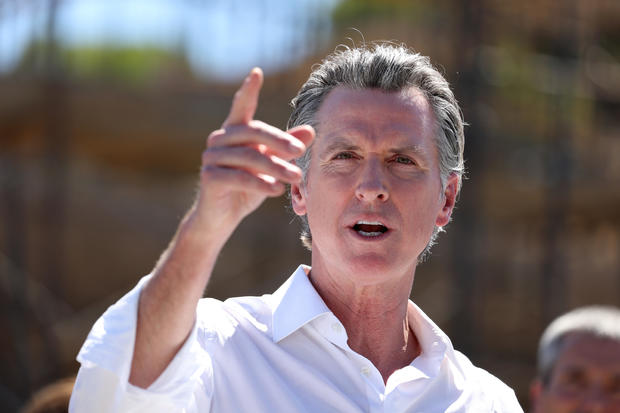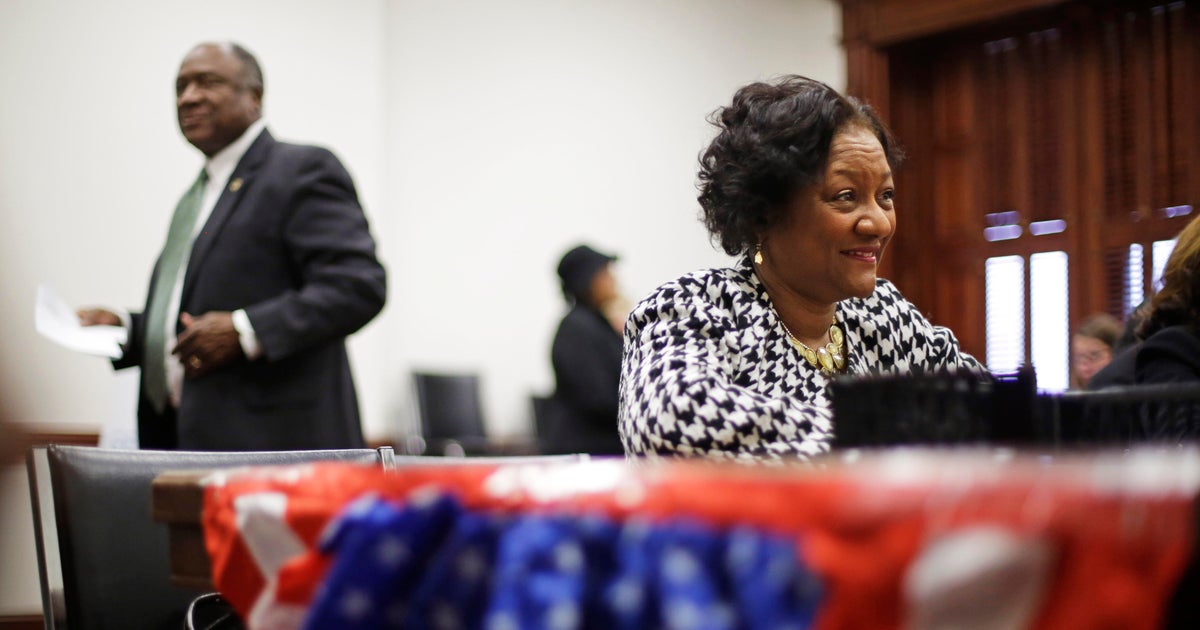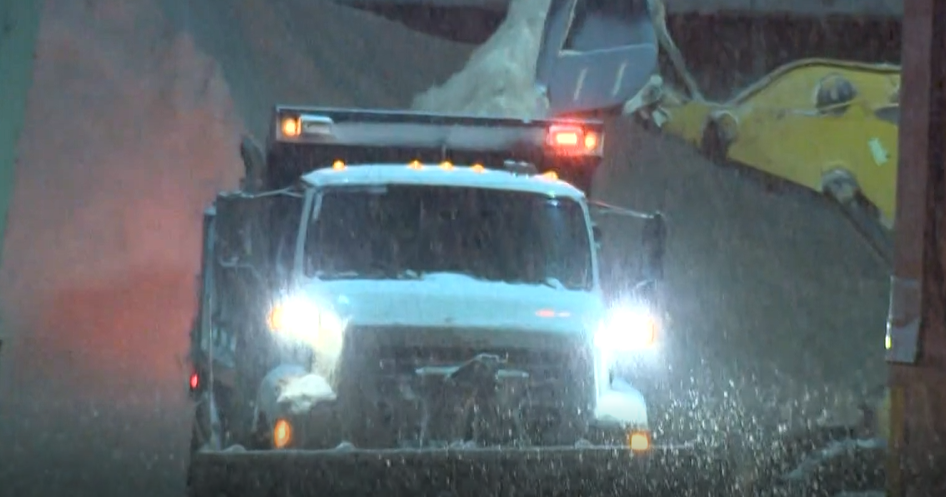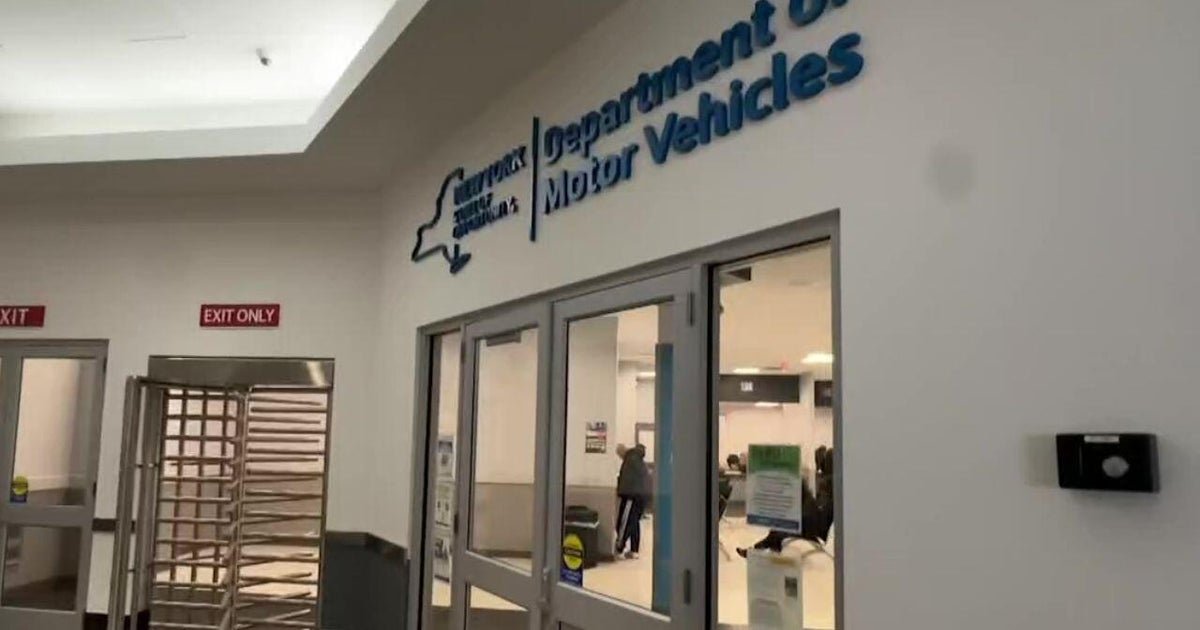Gov. Newsom to end California coronavirus emergency in February
SACRAMENTO -- California's coronavirus emergency will officially end on February 28 of next year as Gov. Gavin Newsom said the state has enough resources and plans to manage the pandemic without the need for a formal declaration that gives the governor power to suspend or change laws.
His office made the announcement Monday, saying the delay until next year will give the state's health care system any flexibility it still needs for a possible winter surge in cases and hospitalizations, and give everyone enough time to prepare for the phaseout.
Newsom declared a state of emergency for the coronavirus on March 4, 2020, shortly after an elderly patient was the first confirmed death from the disease in California — the first of nearly 95,000 deaths in California to date.
Since then, Newsom has used his authority under the emergency declaration to issue 596 orders. Some were small, like delaying deadlines for filing taxes or renewing driver's licenses. But others were life-changing, including issuing a statewide stay-at-home order that caused millions of people to lose their jobs.
"Throughout the pandemic, we've been guided by the science and data – moving quickly and strategically to save lives. The State of Emergency was an effective and necessary tool that we utilized to protect our state, and we wouldn't have gotten to this point without it," Newsom said in the announcement. "With the operational preparedness that we've built up and the measures that we'll continue to employ moving forward, California is ready to phase out this tool."
"While the threat of this virus is still real, our preparedness and collective work have helped turn this once crisis emergency into a manageable situation," added Health and Human Services Secretary Mark Ghaly in the announcement.
The announcement was unexpected for some Bay Area health experts.
"I was a little surprised because of the timing, because we're talking about these new variants coming on board now, they're more transmissible. Only 4% of eligible Americans have gotten the booster. So I think symbolically it was a little surprising to me because again it seems that we are making progress and don't get me are we are, but we have a little hurdle called winter to get through first," said UCSF infectious disease specialist Dr. Peter Chin-Hong.
Dr. Chin-Hong said he doesn't think we will see as many hospitalizations this winter as we saw the last two years. But it's still uncertain what flu season will bring.
Mark Meuser works for the right-leaning Dhillon Law Group, which filed about two dozen lawsuits against Newsom over COVID-19 policies.
"While a state of emergency was necessary for about the first 30 days, after 30 days anything that was going on, had been unnecessary and burdensome on Californians, and so all I have to say is it's about time," said Meuser.
"We had businesses that shut down permanently and will never open up again, we have lost years off of our children's education, not only the educational loss, but the mental strain on them, the emotional strain on them because of COVID, those are going to be consequences that are going to live with us for ages," he said.
When the state of emergency officially ends at the end of February, that will automatically end all of Newsom's pandemic-related executive orders. But it will mostly be a symbolic marker for most people, as the majority of those orders have either already expired or been lifted. As of October, just 27 of Newsom's orders remain in place, according to the governor's office.
The formal end of the emergency would not affect public health orders, which are issued by state and local public health officers. That includes a statewide mandate that schoolchildren be vaccinated against the coronavirus — a mandate that has been delayed until next summer at the earliest.
Still, Newsom says he will ask state the state Legislature to put two of his orders into law. One would continue to allow nurses to order and dispense certain coronavirus medications, and another would allow laboratory workers to continue processing coronavirus tests.
The emergency orders issued by Newsom, a Democrat, survived a legal challenge by Republican Assemblymen James Gallagher and Kevin Kiley. The California Supreme Court last year left in place a lower court's ruling that the governor acted within his authority.
Betty Yu contributed to this report.








